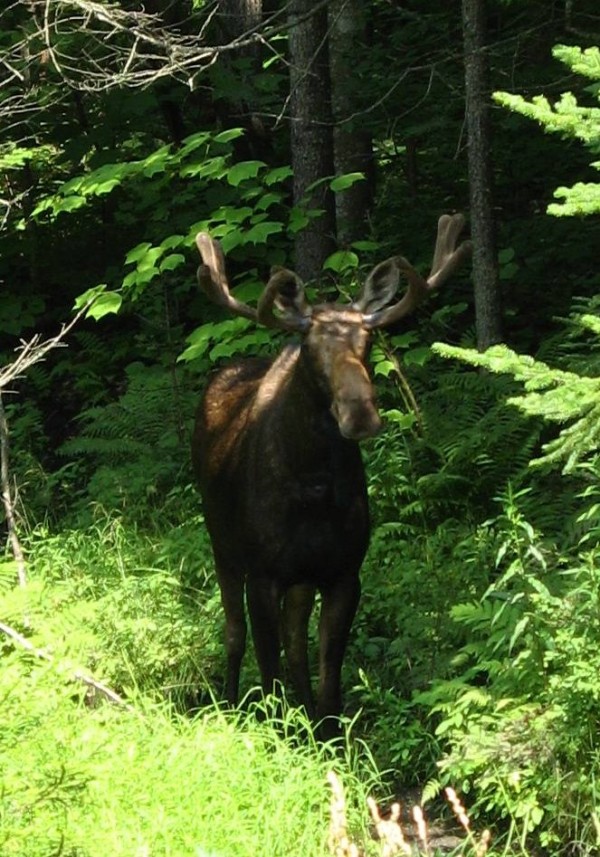By Dane Lorica, | January 05, 2017

A study about the impacts of climate change on Vermont Moose population has commenced. (GD Taber / CC BY-NC-ND 2.0)
A study about the impact of climate change on Vermont Moose population has commenced under the Vermont Fish & Wildlife Department.
The three-year study will focus on understanding the climate change effects on the Moose herd starting this January up to 2019.
The department's official website said: "Moose herds across the Northeast are increasingly under stress from climate change. Specifically, wildlife biologists are concerned that warmer falls and early springs are increasing winter tick numbers that can have detrimental effects on moose. This study will allow the department to better gauge the moose population and its overall health."
Like Us on Facebook
According to the announcement, the research will be conducted by the Fish & Wildlife Department. At least 60 animals will be placed with radio-collars to monitor the movements and culprits of their deaths. Wildlife experts will utilize nets thrown from.helicopters to prevent introduction of excessive stress.
"Department staff will then track these moose for several years using the GPS points gathered by the collars, and by visiting moose directly in the field to record observations," the press release further stated.
Winter ticks attach to the animal and will cause blood loss. As the moose tries to remove the parasite from its body, it will rub itself against woods resulting in the shedding of fur necessary for the maintenance of normal temperature.
"Moose face a variety of potential threats in the northeast, from warmer temperatures to dramatically increased parasite loads and habitat fragmentation," biologist Cedric Alexander said. "It is important that we understand how much these factors are affecting our moose population in Vermont. Our moose conservation efforts must be based on a strong foundation of science if we are to understand and address these threats in the long term."
The study worth more than $500,000 aims to establish further understanding of the causes of the Vermont moose's death as well as the rate of reproduction and mortality of the animal. The researchers also aim to determine the areas where the young disperse to in order to come up with an effective conversation program.
-
Use of Coronavirus Pandemic Drones Raises Privacy Concerns: Drones Spread Fear, Local Officials Say

-
Coronavirus Hampers The Delivery Of Lockheed Martin F-35 Stealth Fighters For 2020

-
Instagram Speeds Up Plans to Add Account Memorialization Feature Due to COVID-19 Deaths

-
NASA: Perseverance Plans to Bring 'Mars Rock' to Earth in 2031

-
600 Dead And 3,000 In The Hospital as Iranians Believed Drinking High-Concentrations of Alcohol Can Cure The Coronavirus

-
600 Dead And 3,000 In The Hospital as Iranians Believed Drinking High-Concentrations of Alcohol Can Cure The Coronavirus

-
COVID-19: Doctors, Nurses Use Virtual Reality to Learn New Skills in Treating Coronavirus Patients







